An Immoral Side Of COVID
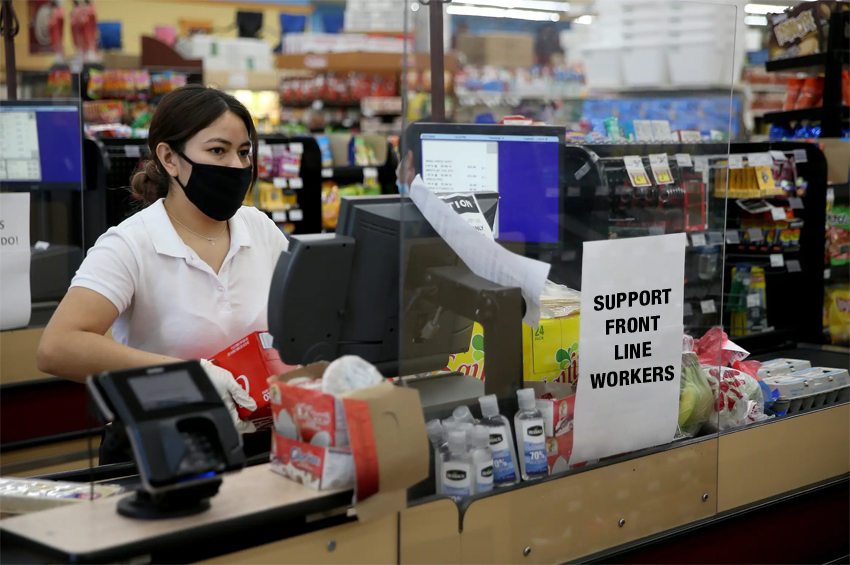
The Issue
Eleven months into the pandemic, institutions, businesses, unions and workers are still dealing with an unresolved, “gorilla in the room” magnitude, ethical issue: Is it not reasonable and right for governments and businesses to offer special compensation for endangered front-line workers? Many of these essential workers, including front-line health staffs and grocery store/warehouse/food service employees, are paid minimum or close to minimum wage, often in precarious work situations.

This blog addresses four questions:
- What are the characteristics of a moral economy during COVID?
- Which sectors, workers and benefits are affected?
- What are the latest developments in widespread adoption of these benefits?
- And, finally, what are the consequences of inaction?
An Ethical Lens on the Pandemic

There are many reasons why morale may be lower in facing this pandemic. Heavy loss of life, the threat to well-being from an invisible enemy, and fear are three that come readily to mind. There is another reason and, coincidentally, it is related to the fact that the word “morale” starts with, or builds upon, the letters m-o-r-a-l. In other words, something moral has been lacking in the economy and civil society since the pandemic hit.
It might have been expected that there would be a profusion of altruisms spawned by those of conscience in this pandemic. Wearing a mask. Buying from and supporting local businesses. Supporting front line workers. Addressing critical care needs in nursing homes. Not crossing municipal boundaries to evade quarantine and isolation regulations. Others as well.
The COVID-19 pandemic has created unusually challenging and dangerous workplace conditions for key workers. This has prompted calls for those endangered workers and their families to receive a variety of special benefits over and above their normal pay. A social justice agenda for a “moral economy” during COVID includes
- pandemic danger pay
- self-isolation pay
- mandated paid sick leave
- right of recall for laid off workers
- priority vaccination for the health compromised
- no fault compensation and benefits for surviving family members
- food security for the disadvantaged.
Grocery, Retail and Warehouse Workers: Pandemic Danger Pay
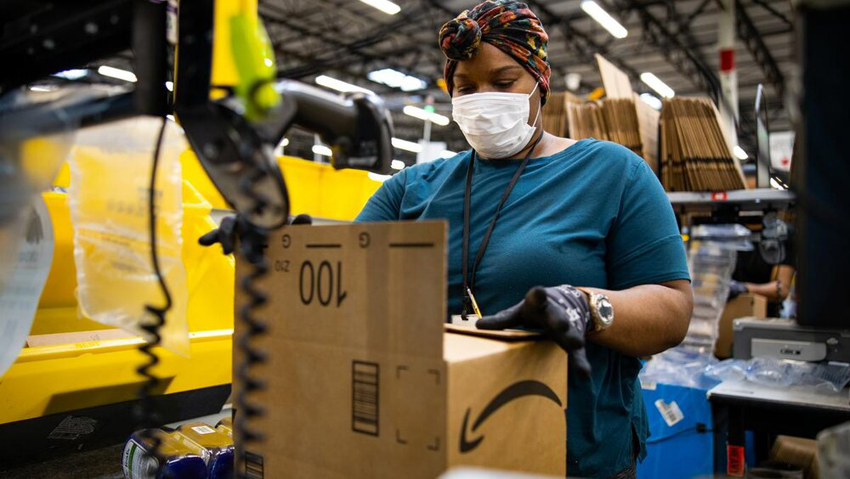
When the pandemic struck Canada in March, major grocery chains said they would boost front-line workers’ wages on average about $2 per hour as employees scrambled to keep shelves stocked amidst widespread panic-buying. But by June, one after another, most chains announced they were ending the pandemic pay bump because the pace of business had eased, giving the unions short notice about the decision. EthicScan blog, Ethical Risk: Pandemic Hero Pay Choices (January 6) reviews which companies (such as Sobeys) offer the supplement today. In most cases, this “hero pay” hasn’t been reinstated despite high COVID-19 numbers and deaths across both countries.
So far, the Canadian government’s most explicit intervention in support of grocery workers’ pandemic pay came last July. Early that month, the federal standing committee on industry met with executives from Canada’s three largest grocers — Loblaws, Metro and Empire Company — after they ended the pandemic pay bump within a few days of each other. Executives from other grocery chains operating in Canada, including U.S. giants Walmart and Amazon, were not called to testify despite also ending pandemic pay for their employees. There was no follow-up by the committee or the government.
Health-Care Workers: Self Isolation Pay

This month, in what was called a time-limited measure, hospitals in Hamilton, Niagara, Brant, Haldimand and Norfolk counties announced that they were providing staff with temporary self-isolation pay, retroactive to August 2020. Doris Grinspun, CEO of the RNAO, is quoted as saying, “I hope every single organization in Ontario follows suit because it’s the right thing to do. It was never right to put the burden of sick time or isolation time on the back of nurses that are putting themselves on the line to care, and to protect and to save lives for the people in Hamilton and Ontario.”
Such “self-isolation” pay will apply to not only asymptomatic workers who have to isolate because of exposure to COVID-19 but also workers scheduled and off work for COVID-19 symptoms or sickness but not eligible for sick pay. This benefit’s impacts are that it:
- (a) stops the spread of COVID-19 virus within hospital walls;
- (b) addresses concerns about staff going to work while symptomatic in order to avoid missing out on pay;
- (c) eases the burden on staff who were exposed to the virus, then self-isolate and tested negative; and
- (d) enhances safe patient care.
Essential Public Service Workers’ Pay Supplements
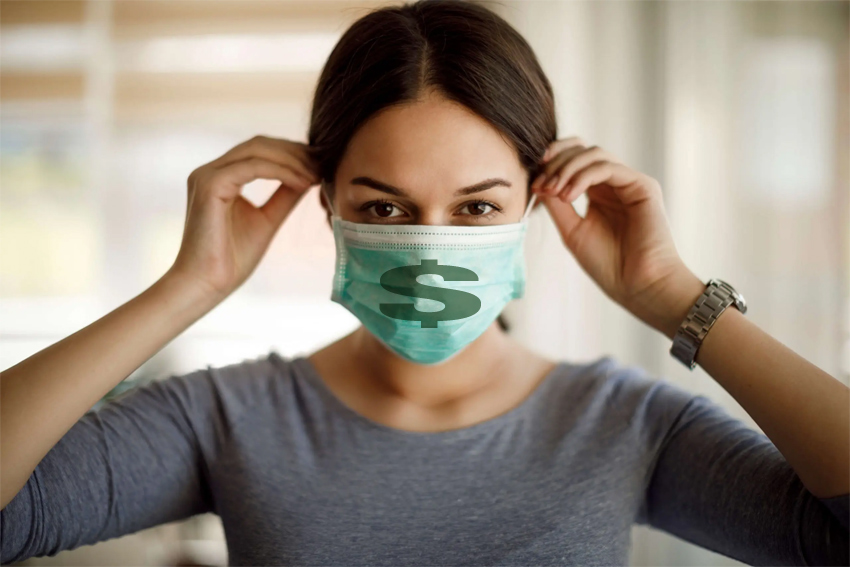
Since the pandemic first wave, various provincial governments offered wage supplements for front line “essential” workers. The federal government made $3 billion available in May 2020, which is being administered by the provinces and territories, to top up the wages of essential workers. The government also implemented several pandemic-related financial supports, including a 75 per cent wage subsidy and modifications to the employment insurance system.
Wages and working conditions fall under provincial jurisdiction, and so far, no province or territory has forced employers to pay front-line employees pandemic pay. The federal government could have said to each province: ‘We’re giving you a bunch of money, and this is how you’re going to spend it’. It didn’t. When the Trudeau government announced the $3-billion wage top-up program in May, it left the funding allocation and determining eligibility criteria entirely up to the provinces and territories.
For example, B.C. only provided a pay bump to certain health care, social services and corrections workers employed at provincially funded workplaces between March and July 2020. This month, the Alberta government finally announced it’s giving danger pay to essential workers, 11 months into the pandemic. “After dragging his heels, [Premier] Jason Kenney finally coughed up a long overdue one-time payment [$1,200 each] to front line pandemic workers, the majority of which is funded by the federal government,” said Unifor National President Jerry Dias. “Yet as Kenney gives with one hand, he cuts jobs with the other. All while continuing to lower pay standards and attack workers’ rights.”
Front-Line Personal Support Workers
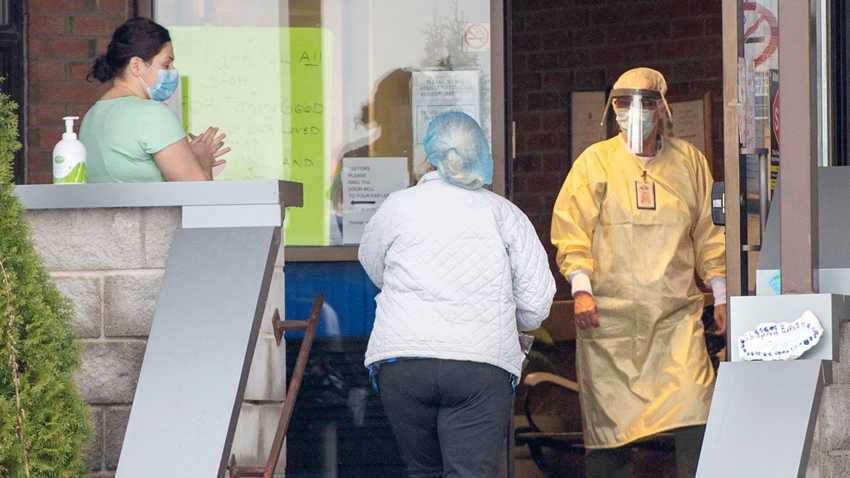
While personal support workers in some areas are eligible for $2.00-3.00/hour pandemic pay, many other front-line heroes remain excluded, yet still face the same challenges. This would include:
- (a) all front line workers in Long-term Care Homes (including cleaners, laundry and dietary workers, rehab/activation workers, clerical workers);
- (b) retirement home workers, including personal support workers;
- (c) all front-line hospital workers including nurses, porters, cleaners and laundry workers, rehab workers, therapists, technicians and technologists, clerical workers and any others with patient contact; and
- (d) All paramedics and any other front line EMS workers.
No-Fault Compensation Benefits for Surviving Families
A no-fault compensation scheme for death caused by an epidemic—like hazard pay for the risks and burdens of working during an epidemic—are benefits often made available to members of the armed forces for the harms, risks and burdens that come with military service. By analogy, key workers during an epidemic, like the military, face unavoidable harms, risks and burdens in providing essential public good. In the UK, a form of no-fault compensation has recently been made available to the surviving family members of key workers who suffer fatal COVID-19 infections. There currently isn’t a moral equivalency, however, because current employment contracts offers less to key workers than is made available to the families of armed services personnel killed on duty.
Although it is relatively rare for key workers to die from COVID-19, the risk of death is obviously much greater than one would usually expect in these roles and key workers clearly have good reason to be anxious. For ‘front line’ workers, the distress is compounded by working in harrowing conditions where so many are dying alone. Furthermore, front line workers have to take on the burdens of ensuring they do not transmit infections to their families, by moving in with patients, living in hotels, or maintaining rigorous social distancing in their own homes.
These atypical costs, risks, and burdens suggest that key workers are owed compensation in addition to their usual pay and a few instances of nationally coordinated applause. There are currently at least three forms of compensation under consideration in the UK.:
(a) per diem hazard pay equivalent to the Armed Forces’ allowance while on deployment (about £30/day);
(b) compensation for the families of key workers for funeral costs and lost earnings if those workers die of COVID-19 modelled on the system used for the Armed Forces; and
(c) offer foreign nationals indefinite ‘leave to remain’; that is, the option of becoming permanent residents without the usual 5 year waiting period and application costs. The Canadian equivalent could be foreign seasonal farm workers who would be treated as were Gurkha soldiers who were offered indefinite leave to remain.
Conclusion
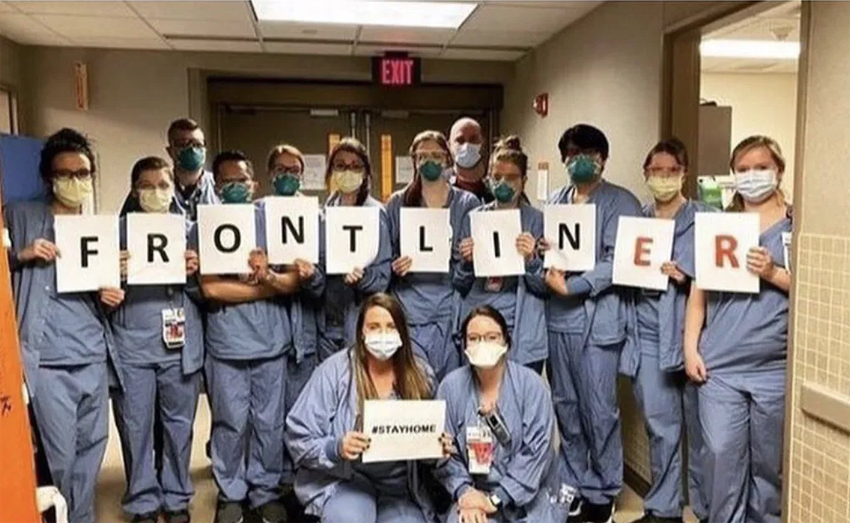
It is really tragic and morally unfair that so many essential workers are going to work, and exposing themselves and their families every day, and that businesses and governments continue not to recognize that. We are not in this together so long as these inequities are allowed to flourish.
Need More Answers?
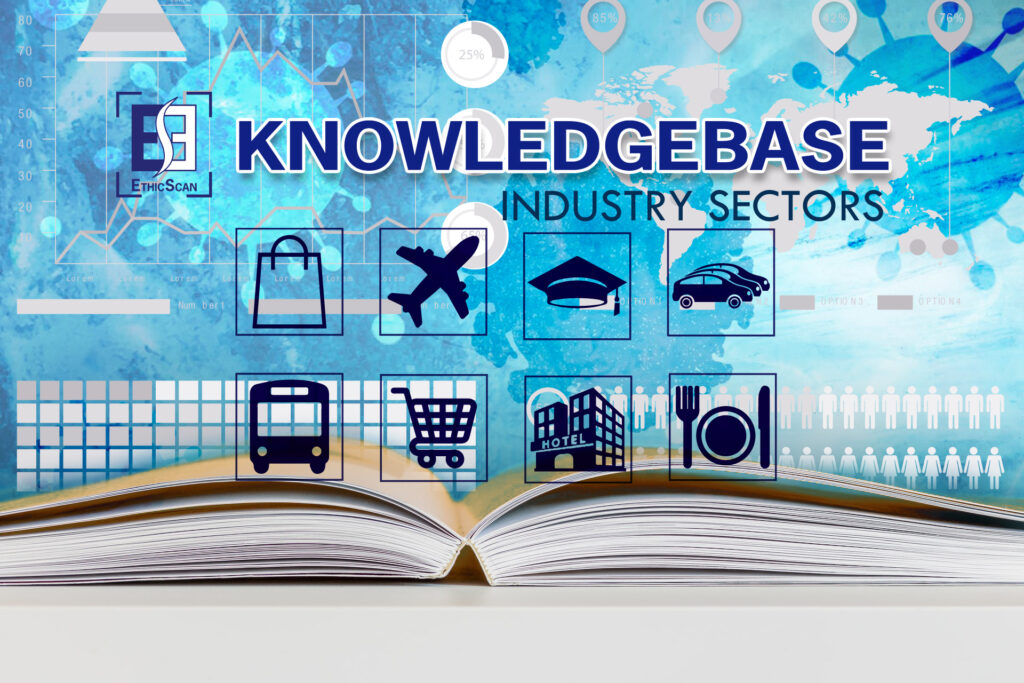
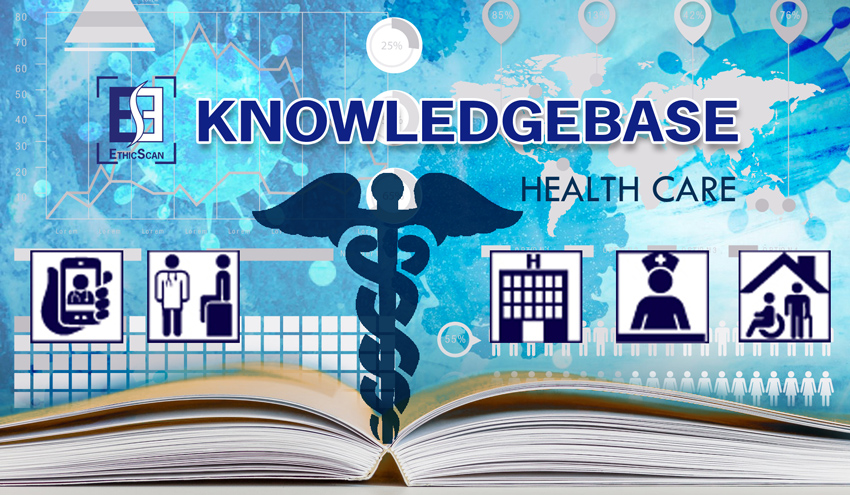
Subscribe to the EthicScan Knowledgebase for in-depth research and the opportunity to share information with industry experts, policy-makers and other health-care professionals.
Sign up for New Blog Alerts
Click here to be notified when new Blogs are available
Further Reading
BMJ Journals – Compensation and hazard pay for key workers during an epidemic: an argument from analogy:
https://jme.bmj.com/content/early/2020/05/27/medethics-2020-106389
SAGE Journals – Profit over People? Evaluating Morality on the Front Line during the COVID-19 Crisis: A Front-Line Service Manager’s Confession and Regrets:
https://journals.sagepub.com/doi/full/10.1177/0950017020971561
EthicScan Blog – Ethical Risk-Pandemic Hero Pay Choices:
http://ethicscan.ca/blog/2021/01/06/ethical-risk-pandemic-hero-pay-choices/
Brookings – The COVID-19 hazard continues, but the hazard pay does not: Why America’s essential workers need a raise:
https://www.brookings.edu/research/the-covid-19-hazard-continues-but-the-hazard-pay-does-not-why-americas-frontline-workers-need-a-raise/
Bioethics.net – Key Workers Have a Stronger Claim to Compensation and Hazard Pay for Working During The COVID-19 Pandemic Than The Armed Forces Do When on Deployment:
http://www.bioethics.net/2020/04/key-workers-have-a-stronger-claim-to-compensation-and-hazard-pay-for-working-during-the-covid-19-pandemic-than-the-armed-forces-do-when-on-deployment/
CBC News – Hamilton hospitals and surrounding areas providing staff self-isolation pay:
https://www.cbc.ca/news/canada/hamilton/hhs-self-isolation-pay-covid-1.5916957
UNIFOR – Jason Kenney’s recognition of COVID heroes is too little, too late:
https://www.unifor.org/en/whats-new/press-room/jason-kenneys-recognition-covid-heroes-too-little-too-late
UNIFOR – Letter to the Premier Re: Pandemic pay for front-line health care workers and unallocated pandemic relief funds:
https://www.unifor.org/en/whats-new/briefs-statements/letter-premier-re-pandemic-pay-front-line-health-care-workers-and
Canada’s National Observer – Feds stay quiet as Biden calls on U.S. grocers to offer pandemic pay:
https://www.nationalobserver.com/2021/01/26/news/feds-stay-quiet-biden-us-grocers-pandemic-pay
- An Immoral Side Of COVID - February 24, 2021
- International Tourism, Sustainable Travel and the Pandemic - February 15, 2021
- A No-End to COVID Scenario - February 8, 2021
